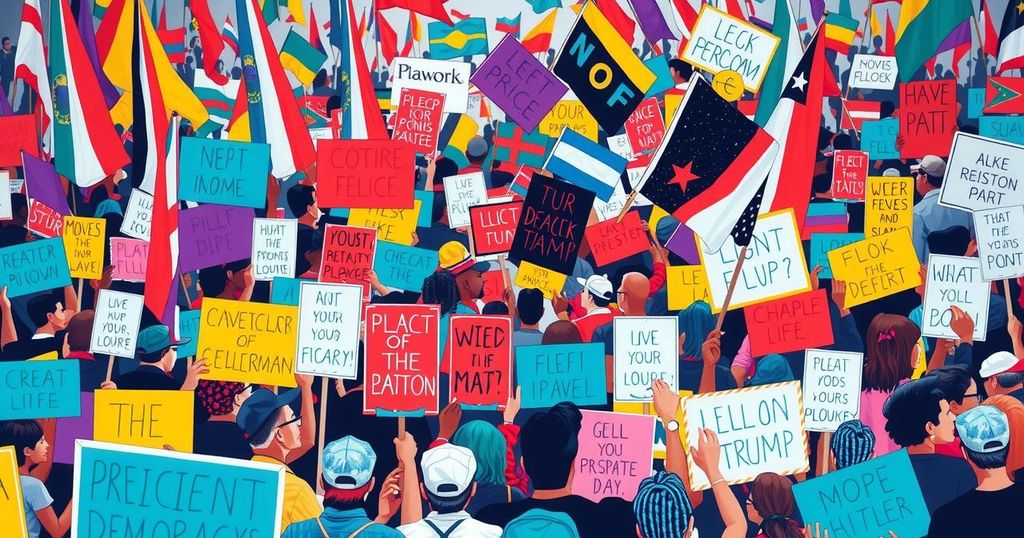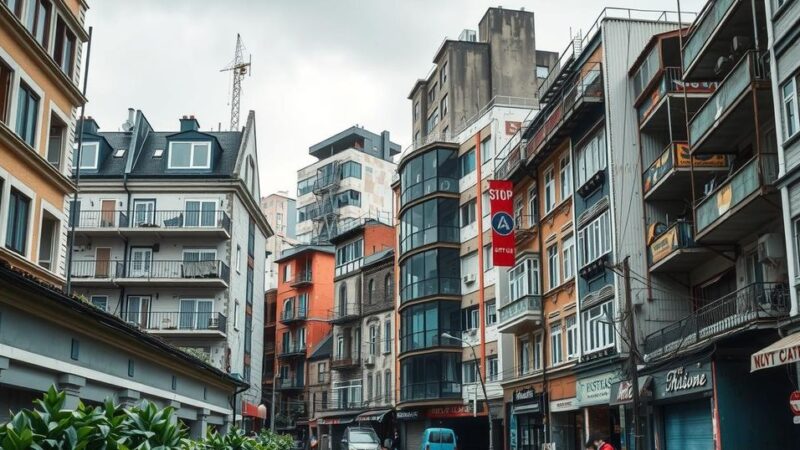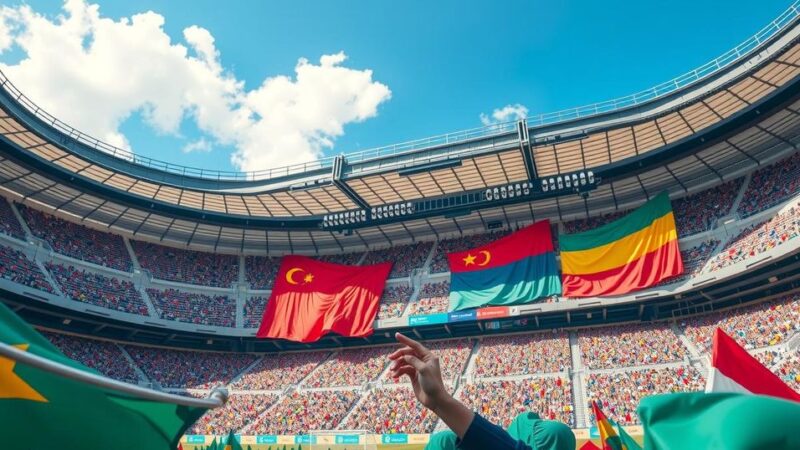Activists in Mali staged their first pro-democracy rally in years, protesting against a bill to dissolve political parties. Demonstrators condemned government actions as anti-constitutional and called for transparent elections. Analysts warn of rising tensions if the military government continues its suppressive tactics.
In a significant turn of events, hundreds of activists took to the streets of Bamako, Mali, this past weekend, marking the country’s first pro-democracy rally in years. This demonstration comes on the heels of a wave of military-led coups that have shaken the region for nearly four years. Protesters voiced their concerns primarily against a controversial new bill proposed by the transitional government that aims to dissolve political parties, a move they believe further curtails political freedoms in Mali.
The rally was held outside the Palais de Culture, a site of potential contention, as police had preemptively cordoned off the area to avert clashes with pro-military supporters who had occupied the venue earlier. Demonstrators expressed their resentment towards the military regime, with chants calling for democratic governance ringing out in the capital.
An official statement from the rally’s organizers highlighted their fierce opposition to the government’s proposals, declaring, “We strongly condemn any attempt to limit, suspend or dissolve political parties, which is a direct attack on the constitution and the sovereignty of the Malian people.” This sentiment clearly encapsulates the activists’ desire for political reform and protection of civil rights.
The following day, a press conference was held by civil society leaders, various political groups, and labor organizations to call for a speedy and credible return to constitutional governance. As organizer Cheick Oumar Doumbia indicated, the emphasis was on the need for “transparent, inclusive, and peaceful elections.” However, police disrupted the gathering, expressing concerns over possible confrontations.
Political analysts are watching closely to see whether the protests reflect a growing desire among Malians for democratic governance. Mamouni Soumano, a political analyst from Kurukanfuga University, indicated there is a significant risk of escalating tensions, especially if political parties remain unsettled by the transitional government’s actions.
In recent decisions, Mali’s government has taken steps that many observers view as suppressive. Just last week, officials issued a decree to repeal the law that governs political parties, following a national political conference. This conference, which was sanctioned by the government, also suggested that current junta leader Gen. Assimi Goita be appointed as president for a renewable five-year term.
The ongoing shift in Mali’s political landscape is further complicated by the military government’s decision to sever diplomatic ties and military cooperation with traditional Western allies, as it pivots towards strengthening relationships with Russia and other nations. As the situation unfolds, the implications for democracy and political stability in Mali remain to be seen.
The recent pro-democracy rally in Mali represents a pivotal moment for activists opposing the military government. As they voice concerns over new legislation aimed at dissolving political parties, the atmosphere remains fraught with potential unrest. Observers note that the government’s recent actions, including the proposed extension of junta rule, might exacerbate tensions and hinder the push for a return to democratic governance. The rally may just be the beginning of a broader movement as civil society groups rally for constitutional rights and free elections.
Original Source: www.newsday.com






